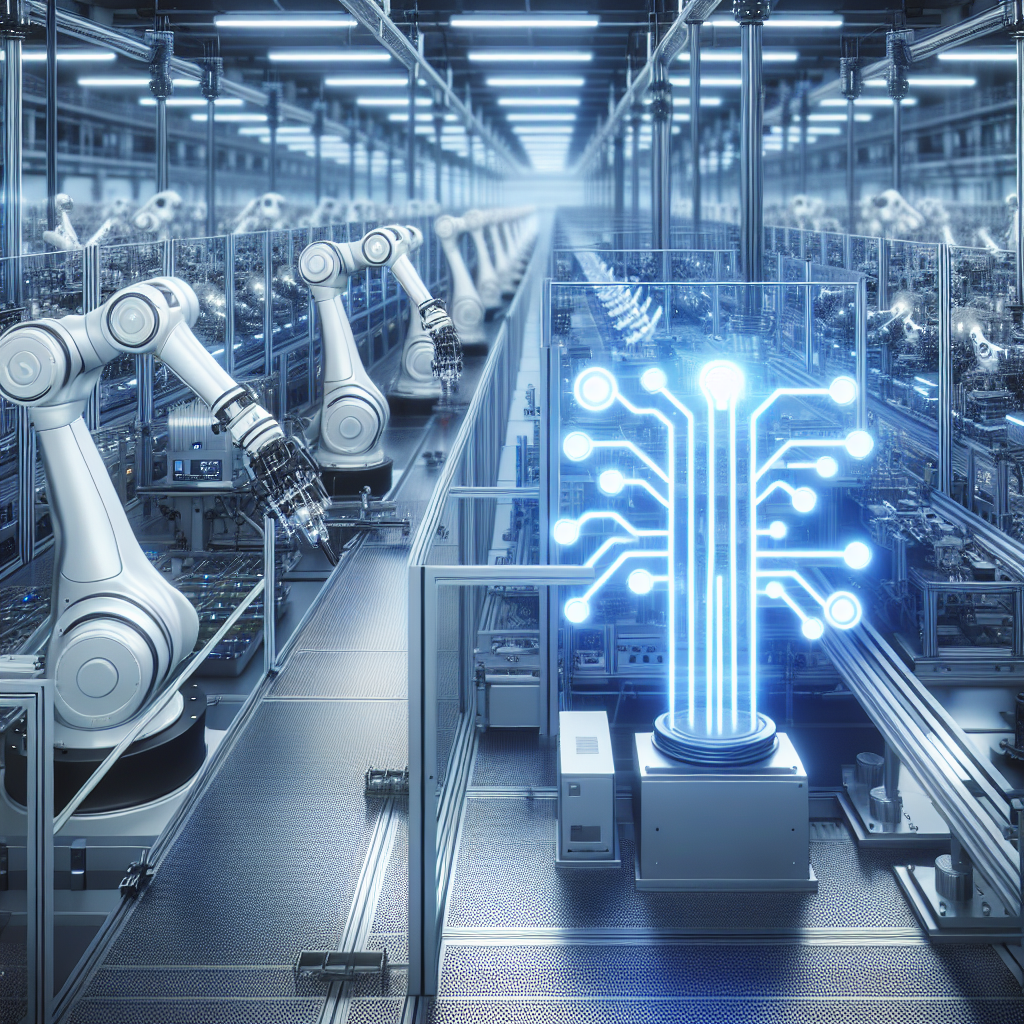The Role of AI in Precision Manufacturing
Precision manufacturing is a crucial part of many industries, from automotive to aerospace to electronics. The ability to create products with extremely tight tolerances and high levels of precision is essential for ensuring the quality and reliability of these products. In recent years, artificial intelligence (AI) has been playing an increasingly important role in precision manufacturing, revolutionizing the way products are designed, produced, and inspected.
AI in precision manufacturing refers to the use of machine learning algorithms and other AI technologies to optimize and automate various aspects of the manufacturing process. This can include everything from designing and simulating products to controlling and monitoring manufacturing equipment to inspecting and testing finished products. By leveraging AI, manufacturers can achieve higher levels of precision, efficiency, and quality in their production processes.
One of the key ways that AI is transforming precision manufacturing is through the use of predictive analytics. By analyzing vast amounts of data from sensors and other sources, AI algorithms can predict when equipment is likely to fail or when a product is likely to be defective. This allows manufacturers to proactively address issues before they occur, minimizing downtime and reducing scrap rates.
AI is also being used to optimize production processes in real time. By continuously monitoring and analyzing data from manufacturing equipment, AI algorithms can adjust settings and parameters to maximize efficiency and quality. This can lead to significant cost savings and improvements in product performance.
Another important application of AI in precision manufacturing is in the area of quality control. Traditional methods of inspecting and testing products can be time-consuming and labor-intensive, and may not always catch defects or anomalies. By using AI-powered computer vision systems and other advanced technologies, manufacturers can more accurately and efficiently inspect products for defects, ensuring that only high-quality products reach the market.
Overall, the role of AI in precision manufacturing is to improve efficiency, quality, and reliability throughout the production process. By leveraging the power of machine learning and other AI technologies, manufacturers can achieve higher levels of precision and consistency in their products, leading to greater customer satisfaction and competitive advantage.
FAQs:
Q: How is AI used in product design in precision manufacturing?
A: AI is used in product design in precision manufacturing to optimize the design process, simulate different design options, and predict how a product will perform in real-world conditions. By using AI algorithms to analyze and generate design solutions, manufacturers can achieve higher levels of precision and efficiency in their products.
Q: What are some examples of AI applications in precision manufacturing?
A: Some examples of AI applications in precision manufacturing include predictive maintenance, real-time process optimization, and quality control. By using AI algorithms to analyze data from sensors and other sources, manufacturers can predict when equipment is likely to fail, optimize production processes in real time, and inspect products for defects more accurately.
Q: How does AI improve efficiency in precision manufacturing?
A: AI improves efficiency in precision manufacturing by automating repetitive tasks, optimizing production processes, and minimizing downtime. By using AI algorithms to analyze data and make real-time decisions, manufacturers can achieve higher levels of productivity and quality in their production processes.
Q: What are the benefits of using AI in precision manufacturing?
A: Some of the benefits of using AI in precision manufacturing include higher levels of precision and consistency, improved efficiency and productivity, reduced scrap rates and downtime, and better quality control. By leveraging the power of AI, manufacturers can achieve greater levels of performance and competitiveness in their products.

